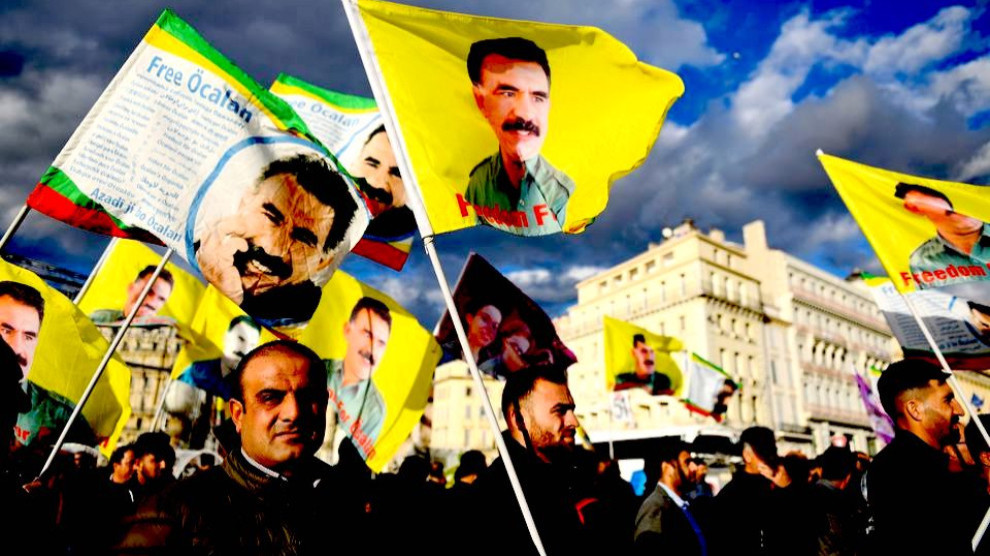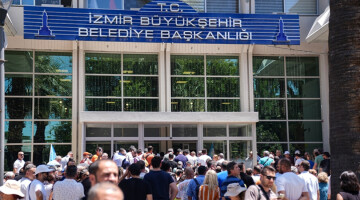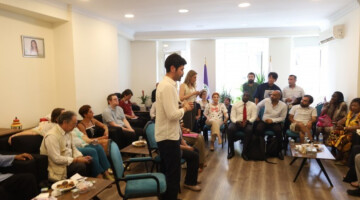Peace in Kurdistan Campaign issued a statement marking the 21st anniversary since Ocalan’s abduction in Nairobi, 15th February 1999, by Turkish MIT agents supported by the CIA.
The statement reads: "It is difficult to believe that it is now more than two decades since Abdullah Ocalan, the leader and founder of the Kurdistan Workers’ Party, lost his freedom. It is a reality difficult to accept because Abdullah Ocalan remains a shaping influence on the current politics of the Kurdish movement in Turkey and throughout the region. His influence has achieved a permanency as a result of the power of his ideas and the loyalty of his people. The Kurdish people and supporters worldwide were outraged as much as they were dismayed by the brutal and conspiratorial manner of Ocalan’s apprehension in a coordinated multi-state operation involving security services working across continents. He was taken to Turkey from Kenya after having his movements tracked half-way around the world. He was delivered to Turkey trussed up and supposedly humiliated like a trophy for the satisfaction of the victors and their clamouring populous."
The statement continued: "By this action, Ocalan was supposed to have been defeated, his ideas eradicated from the public domain and his influence snuffed out forever. Turkish leaders indeed crowed in triumph. But their celebrations of victory over the Kurds were hollow and decidedly premature. Undeniably, Ocalan had been arrested, he was put on trial, he was chained, detained, placed in isolation, removed from public view, but his ideas and influence were not diminished. On the contrary, the light continued to shine. In fact, with every year, Ocalan’s stature and the influence of his ideas about humanity’s liberation and the democratisation of our society have grown. The seeds that his writings, his speeches and his example of resistance have sown grew into a great social force that has started to permanently transform the region. Setbacks there will be, but the people have been awakened and they have tasted freedom."
The statement underlined that "Kurds in the liberated parts of Syria, in Rojava, although now again under grave threat from Turkish intervention, have been guided by Ocalan’s programme for devolved participative democracy (Democratic Confederalism). The Kurdish movement in Turkey have continued to resist, through the ballot box where they have backed the HDP in ever greater numbers despite their elected mayors and MPs being dismissed and arrested. Kurds have built their social institutions, their media and strengthened their culture through the raising of their national consciousness as a result of the tireless political activism of Ocalan and his cadres. Despite the increased repression meted out by Erdogan, the Kurds continue to resist. They are not defeated. They still look to Ocalan as a leader and teacher. Likewise, Kurds in Iran are on the move despite the waves of repression and the crisis in the Iranian State."
The continued detention of Ocalan, said the statement "remains a grave injustice and an indelible stain on Turkey, whose reputation seems irretrievably shattered. His detention in isolation after so many years is a crime against the Kurdish people, and it is surely high time that he was released. He has sought against the odds to play a constructive role to bring about a lasting peace and reconciliation between the Turkish and Kurdish people. He has persisted over the decades despite facing many rebuffs from the political leaders in Ankara. Ocalan represents hope and endurance. He is still the voice of the Kurds and he articulates clearly their demand for justice and freedom."
The statement added: "Turkey insists and tells the world that Ocalan is dangerous. He is a terrorist. He cannot ever go free. But others take a very different view. To the Kurds and to many others, Abdullah Ocalan is a brave and original thinker, the political leader of the Kurdish Freedom Movement; a heroic figure and, given the chance, a potential peace maker. The recent historic court ruling in Belgium on the designation of the Kurdistan Workers’ Party (PKK) must have a significant bearing on attitudes to the PKK and to how Ocalan is perceived. The Belgian Court of Cassation ruled that the Kurdistan freedom struggle cannot be defined as terrorism, that the issue is not about terror but a war, and the PKK is a party to that war."
Peace in Kurdistan reminded that, as it has long argued, "Ocalan is a leader of a people. He deserves a place at the table where a brokered peace can be negotiated. There is still an opportunity for Ocalan to play a constructive role in bringing about the peace that the Kurds are seeking. As Ocalan approaches his 21st anniversary behind bars, it is time to reopen his case, time to grant him his freedom and time to begin a new chapter in Kurdish-Turkish relations. The relentless violence and repression simply cannot go on."












